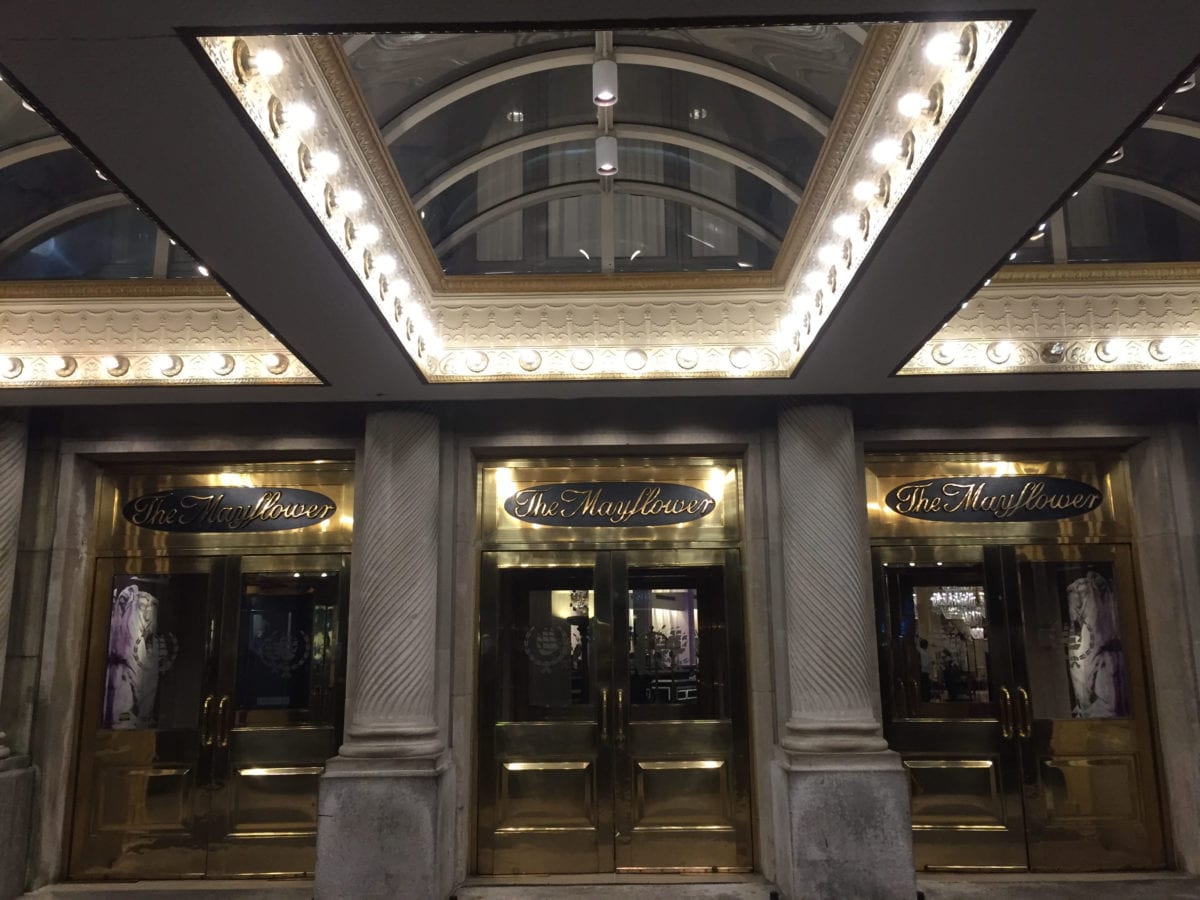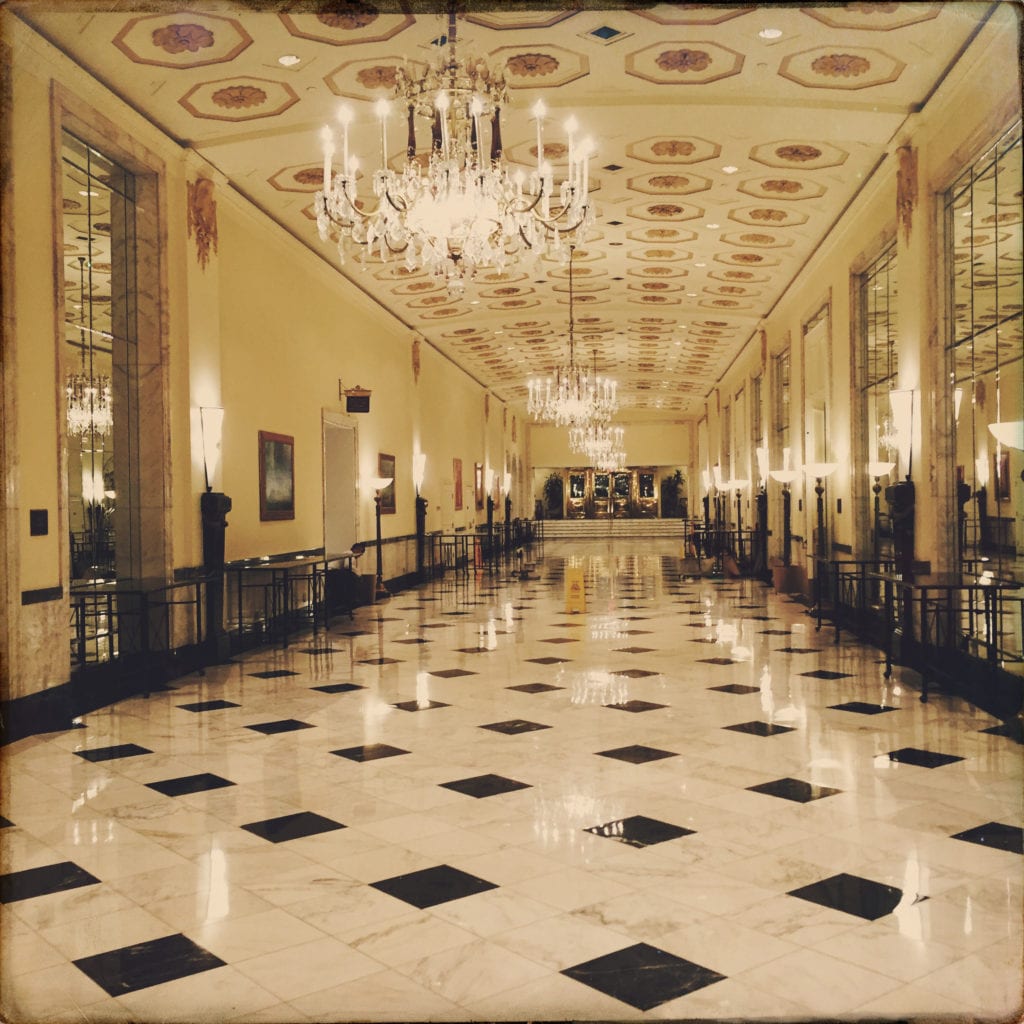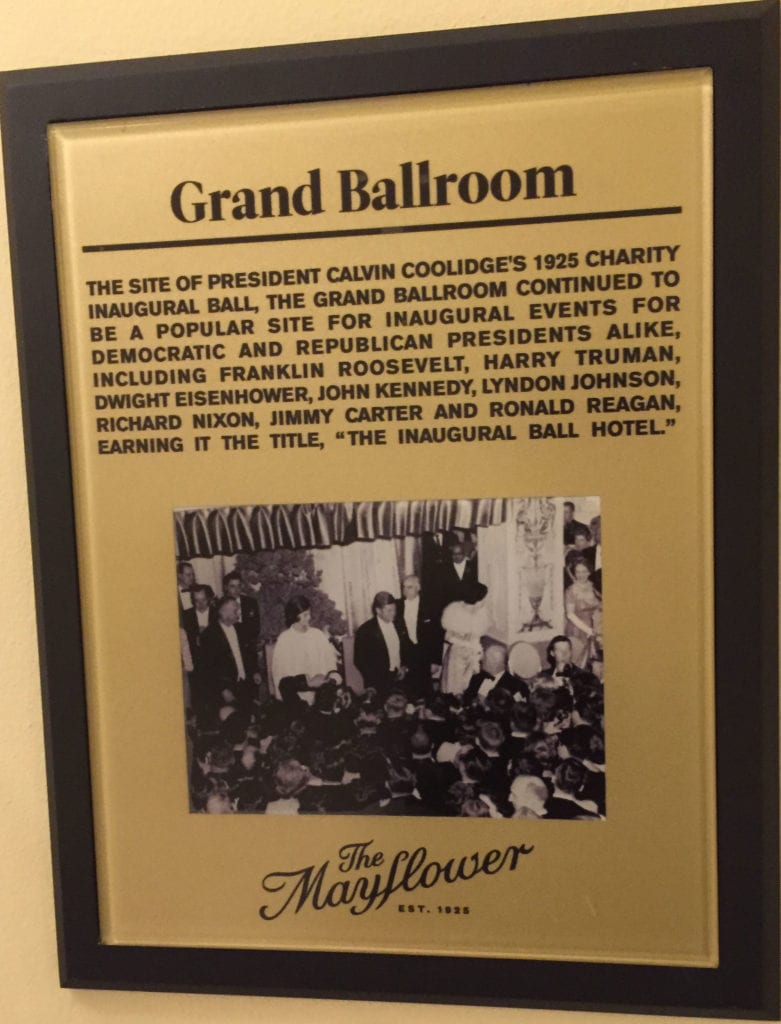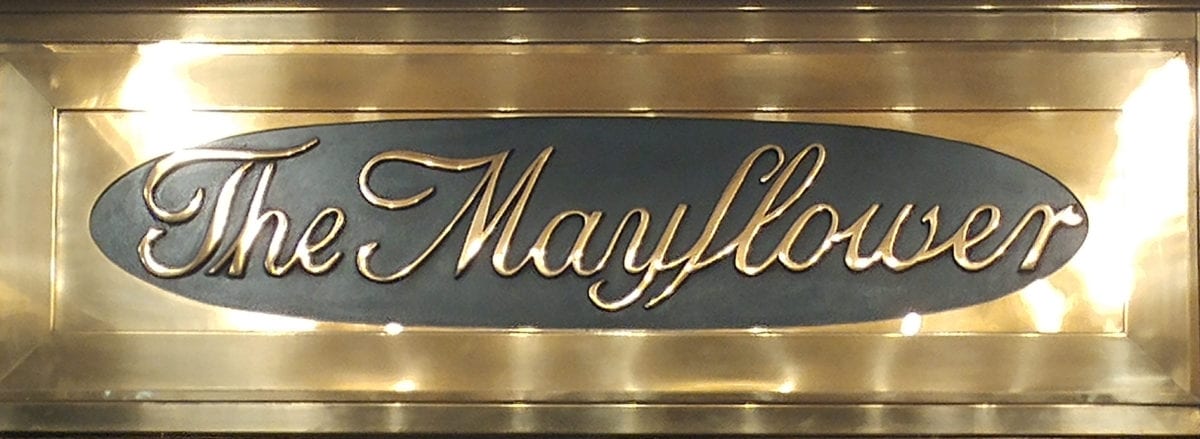By Glynn Wilson –
WASHINGTON, D.C. — The Mayflower Hotel on Connecticut Avenue has been the scene for a number of historic events and scandals in its history since opening in 1925 during the so-called “Roaring Twenties.” If the people, the press and the special prosecutor were paying attention, it could become the scene of the undoing of Attorney General Jeff Sessions and potentially President Donald J. Trump himself, although it is unknown if their use of the hotel for meetings with Russians during the 2016 campaign involved any sex.
One of President John F. Kennedy’s alleged mistresses, Judith Exner, claimed they had sexual trysts in the hotel. President Bill Clinton’s famous intern Monica Lewinsky stayed at the Mayflower in the late 1990s while their affair was in the news, where she was interviewed by federal investigators in the Presidential Suite. She was photographed with Clinton at a campaign event not long before the 1996 election there. New York Governor Eliot Spitzer allegedly patronized a high class prostitution service called Emperors Club VIP while staying at the Mayflower in 2008.
According to initial reporting by The Guardian newspaper, not repeated by any other news outlet that we can find, Sessions used The Mayflower as the setting for at least two conference dinner meetings during the election campaign where Russians and lobbyists for Russia were not only in attendance, but clearly at the center of attention.
Richard Burt, an American lobbyist for Russian interests and a former ambassador to Germany during the Reagan years, confirmed to reporters for The Guardian that he had several contacts with Sessions during the campaign, including conference dinner meetings at The Mayflower.
“I did attend two dinners with groups of former Republican foreign policy officials and Senator Sessions,” Burt said.
The conference meetings, attended by Russian ambassador Sergey Kislyak and other Russian operatives, were hosted by the Center for the National Interest, a conservative think tank established by former President Richard Nixon in 1994 as the Nixon Center for Peace and Freedom and later just called the Nixon Center. Sessions has long had a relationship with this think tank.
It was there that Burt helped craft candidate Trump’s first important foreign policy speech. Delivered at The Mayflower on April 27, 2016, Trump first began to outline his friendly posture toward Russia.
“We desire to live peacefully and in friendship with Russia… We have serious differences … and must regard them with open eyes, but we are not bound to be adversaries,” Trump said. “We should seek common ground based on shared interests.”
Trump indicated Russia has seen “the horror of Islamic terrorism.”
“I believe an easing of tensions, and improved relations with Russia from a position of strength only is possible, absolutely possible,” Trump said. “Common sense says this cycle, this horrible cycle of hostility must end and ideally will end soon.”
“Some say the Russians won’t be reasonable. I intend to find out,” Trump said. “If we can’t make a deal under my administration, a deal that’s great — not good, great — for America, but also good for Russia, then we will quickly walk from the table. It’s as simple as that. We’re going to find out.”
That meeting and speech are now at the heart of an investigation by Special Prosecutor Robert Mueller into Sessions and other Trump advisers’ personal and political dealings with Russian officials and their representatives during the presidential campaign.
While Sessions claimed to have recused himself in any investigation of Russian meddling in the election in March after the Washington Post disclosed that he had at least two meetings with the Russian ambassador last year, he signed one of the letters recommending the firing of FBI Director James Comey, a major turning point in the ongoing scandal.
In his original testimony before the U.S. Senate Judiciary Committee during his confirmation as Trump’s appointee to become attorney general, Sessions was caught lying about contacts with Russian officials during the campaign.
He later amended his testimony in writing and, when he was called back to testify again, this time before the U.S. Senate Select Committee on Intelligence, Sessions appears to have lied under oath again. He claimed he did not “believe” he had any contacts with lobbyists working for Russian interests during the campaign, and that he could not “recall” any such meetings. But The Guardian is reporting and we have confirmed through independent sources that Sessions is the one who invited Burt to discuss foreign policy and national security.
When Arizona Republican John McCain, a frequent critic of Trump and Russian president Vladimir Putin, asked Sessions whether he had ever had “any contacts with any representative, including any American lobbyist or agent of any Russian company” during the 2016 campaign, Sessions said he did not.
“I don’t believe so,” Sessions said, under oath.
Sessions was the first U.S. Senator to endorse Trump for president and became a key national security policy adviser and campaign strategist. Sessions and Trump clearly knew and had contact with Burt, who had served on the advisory board of Alfa Capital Partners, a private equity fund heavily invested in by Russia’s Alfa Bank. Burt lobbied on behalf of a pipeline company that is now controlled by Gazprom, Russia’s state-controlled energy conglomerate.
None of this is unknown to major mainstream media reporters in Washington, since even The New Yorker magazine and Reuters reported last year that Burt had contributed his views to Trump’s speech. When NPR interviewed Burt in May 2016 about the talk, he said he was “asked to provide a draft for that speech, and parts of that draft survived into the final [version]”.
Also, we are working on another even deeper investigation into Sessions’ involvement with Russian companies and oligarchs down in Alabama. Perhaps no one in Washington is asking the right questions. Sessions appears to have been involved with the same Russians Trump and other advisers have been involved with, not just last year during the campaign, but going back perhaps 25 years.
Meanwhile back at The Mayflower, perhaps there is another lesson for Trump here — if Fox News would run it so he could see it and find out about it.
President Calvin Coolidge held his inaugural ball at the hotel just two weeks after its opening. Known as “Silent Cal,” Coolidge’s had a reputation as a quiet man. I doubt he would approve of Trump’s use of Twitter.
”The words of a President have an enormous weight, and ought not to be used indiscriminately,” Coolidge later explained.
Coolidge was elected as the 29th vice president in 1920 and succeeded to the presidency upon the sudden death of Warren G. Harding in 1923. Elected in his own right in 1924, Coolidge gained a reputation as a small-government conservative. Yet unlike Trump, Coolidge restored public confidence in the White House after the scandals of his predecessor’s administration, and left office with considerable popularity, according to historians.
“He embodied the spirit and hopes of the middle class, could interpret their longings and express their opinions,” a Coolidge biographer wrote. “That he did represent the genius of the average is the most convincing proof of his strength.”
Perhaps if Trump knew any history, he might get the point of that. Meanwhile we all await with anxious anticipation the next break in the investigation into Trump’s ties to Russia and what the special prosecutor will have to say about the scandal.
More Photos

















